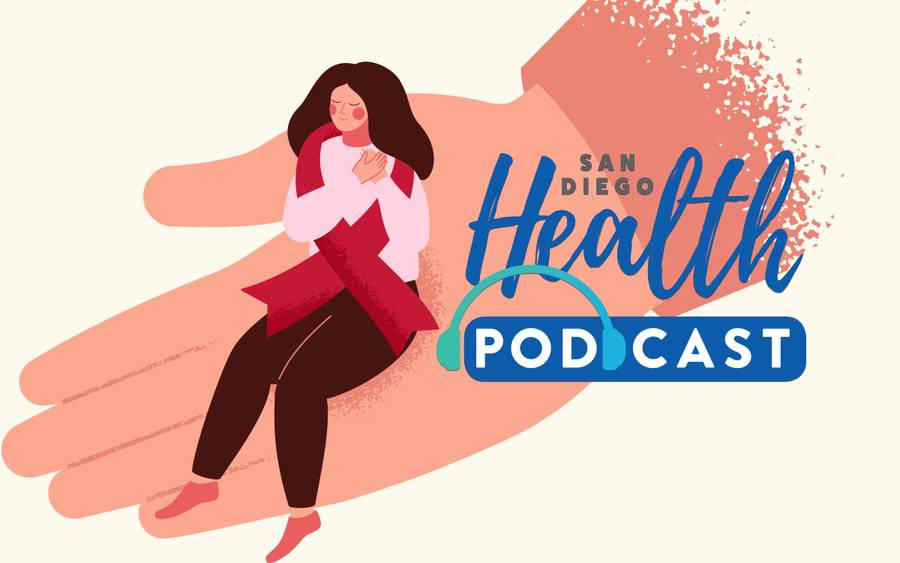How Do You Care For Someone with Cancer? (podcast)
Cancer caregivers are often family members, friends, partners

Cancer caregivers are often family members, friends, partners
When a loved one is diagnosed with cancer, having a caregiver who is willing to be there with them is priceless and really helps with their journey. But what is the role of a caregiver?
In this episode of San Diego Health, host Susan Taylor and guest Debbie Desino, an oncology nurse navigator at the Scripps Cancer Center, talk about ways caregivers — who are often family members, close friends or partners — can help their loved ones who have cancer.
Just being there for the initial discussions as a second set of ears helps take some of the stress off the already overwhelmed patient. From there, helping set up appointments, making sure all the medications are in order, and communicating with the nurses and physicians are all ways to give the patient the support they need to keep moving forward.
As a caregiver, don’t forget to take care of yourself. Neither the patient nor the caregiver will be in a good situation if the caregiver doesn’t take the time to take care of themselves too. If as a caregiver you have any concerns, reach out to a nurse navigator so they can act on them and provide guidance to anyone else you should contact.
Listen to the episode on what caregivers do for cancer patients.
Listen to the episode on what caregivers do for cancer patients.
Podcast highlights
Lightly edited for clarity
Watch the video on cancer care givers
Watch the San Diego Health video on how to care for a loved one with cancer with host Susan Taylor and Scripps Oncology Nurse Navigator Debbie Desino.